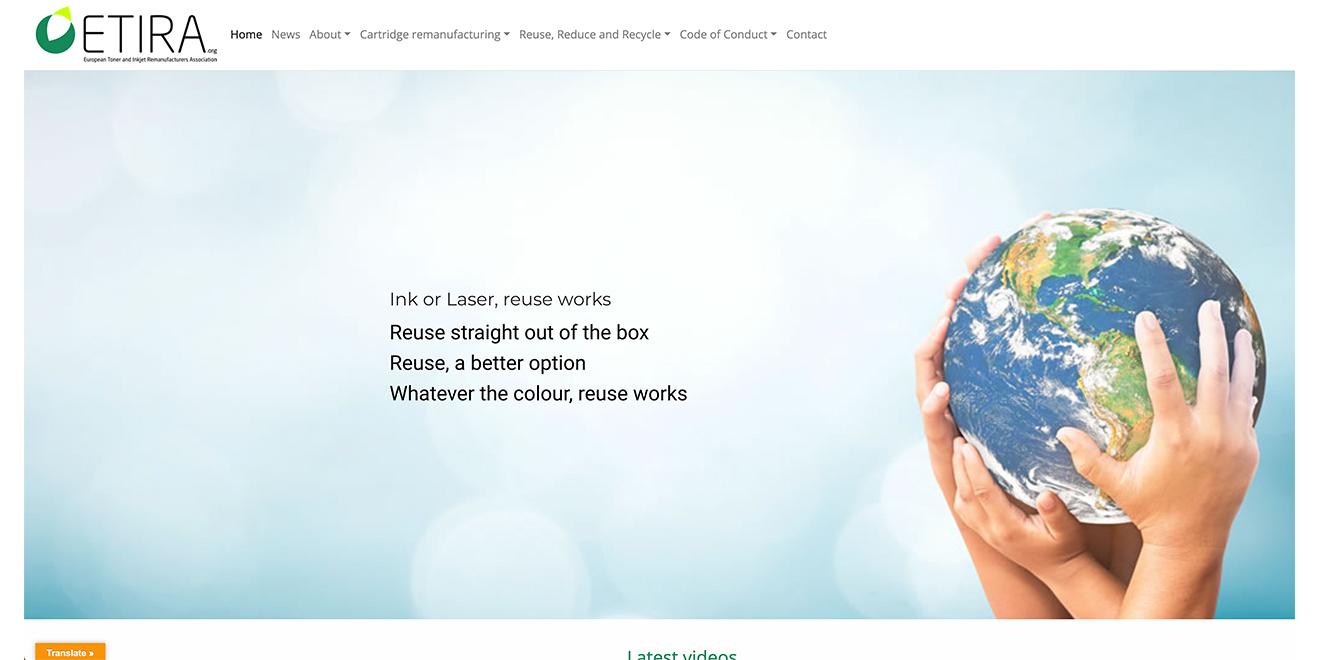ETIRA President Javier Martinez shares his thoughts on the environmental, legal, and ethical challenges facing the printer consumables industry.
Every few seconds, a printer cartridge is sold somewhere in Europe. But how many of these cartridges are legal, safe, or even environmentally friendly? The answer may shock you. Beneath the surface of this everyday product lies an industry riddled with opaque practices, environmental negligence, and outright illegality.
OEMs: The masters of misleading transparency
 At first glance, OEMs (Original Equipment Manufacturers) represent the gold standard of quality and innovation. However, their business practices tell a darker story. Tiny ink cartridges with barely any ink, equipment deliberately designed for limited durability, and exorbitantly priced replacement parts expose the need for more transparency and sustainability.
At first glance, OEMs (Original Equipment Manufacturers) represent the gold standard of quality and innovation. However, their business practices tell a darker story. Tiny ink cartridges with barely any ink, equipment deliberately designed for limited durability, and exorbitantly priced replacement parts expose the need for more transparency and sustainability.
Eco-design principles? Missing. Support for second-hand markets? Absent. End-of-life management.? An afterthought.
A printer that could last years often ends up replaced after just a fraction of its potential lifespan. When asked, “Which printer should I buy?” the best answer might still be: “Find a sturdy model from the early 2000s.”
The dark side of cheap compatibles
If OEMs are flawed, the world of cheap compatible cartridges is worse. Many of these products flood into Europe from manufacturers with little regard for environmental regulations or consumer health. Research by ETIRA in 2018 revealed the presence of decaBDE—a banned endocrine disruptor—in numerous imported consumables. Fast-forward to today and the violations extend far beyond chemical non-compliance.
ETIRA’s latest study uncovered horrifying gaps in compliance with WEEE (Waste Electrical and Electronic Equipment) and CE marking standards. A third of the cartridges on the market are illegal, unsafe, and unchecked. How is this possible?
Europe’s role in enabling non-compliance
The blame doesn’t rest solely on foreign manufacturers. European importers play a key role by bringing these non-compliant products into the market. These actors skirt regulations and place products that violate multiple laws, some of which carry severe penalties, including imprisonment.
Market surveillance authorities and customs appear overwhelmed, allowing this “black traffic” to continue unchecked. Consumers, drawn by low prices, unknowingly support this cycle of environmental and legal negligence.
A fragile house of cards
This industry’s foundation relies on weak oversight and the illusion of compliance. But how long can it last?
Picture the story of the three little pigs. The “straw house” of lax enforcement is already beginning to buckle under the winds of consumer awareness and stricter environmental policies. When the “stick house” of cheap, non-compliant imports collapses, it will be too late for the industry to find shelter.
The path forward: Accountability and action
We must demand better. The industry can no longer hide behind greenwashing, expired certifications, and meaningless logos. Authorities must step up to enforce regulations, closing the floodgates to illegal imports. Consumers must push for certified, compliant cartridges that prioritise sustainability and safety.
ETIRA has been leading the charge, but it cannot fight alone. As stakeholders in this industry, we all have a role to play. The dirt on your hands from handling a used cartridge pales in comparison to the stain these practices leave on our planet. It’s time to clean up the industry—for good.




















